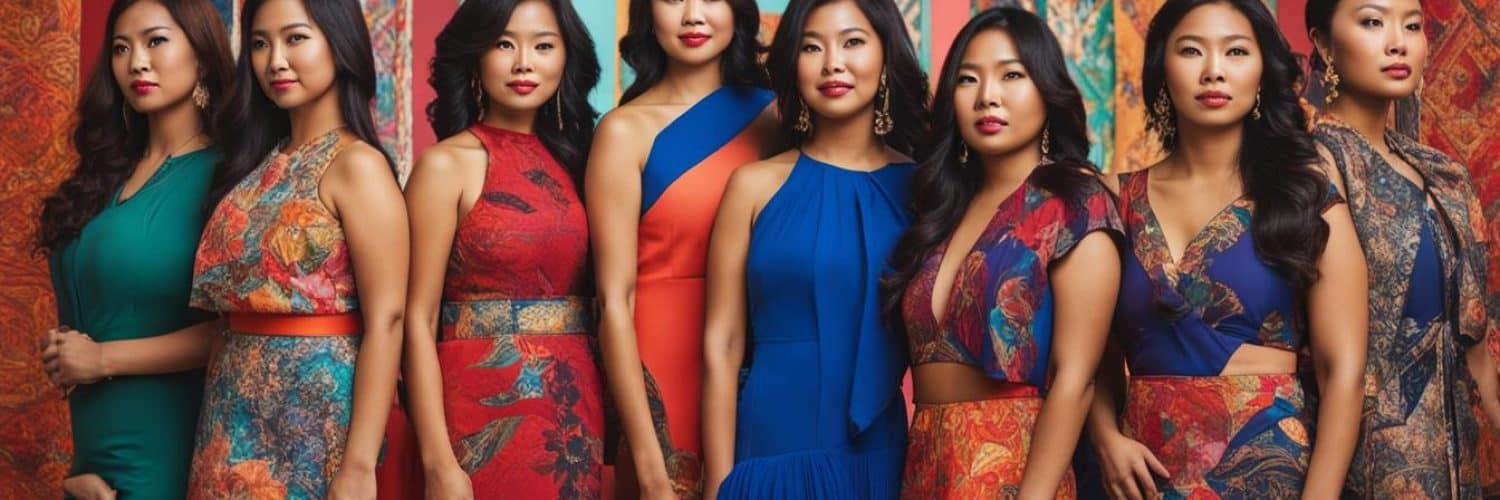Filipino women are often subject to stereotypes and judgments that fail to capture the full complexity of their experiences and contributions. In this article, we will explore common stereotypes about Filipino women, challenge these misconceptions, and celebrate the diverse roles and achievements of Filipino women. To do so, we will draw from various sources to provide a comprehensive understanding of this topic.
Key Takeaways:
- Filipino women defy the stereotype of being solely mail-order brides and assert their independence and autonomy in relationships.
- They excel in various careers and showcase their talents in traditionally male-dominated fields, challenging the stereotype that they can only work certain jobs.
- Despite common misconceptions, Filipino women abroad actively engage in cultural exploration and personal growth, breaking the stereotype of staying in a little bubble.
- Not all Filipino women speak English fluently, but their adaptability and genuine effort compensate for any language barriers.
- Filipino women challenge the stereotype of being overly conservative by embracing their individuality and exploring new experiences.
Common Stereotype 1: All Filipinas Are Mail-Order Brides
Despite being outdated and untrue, the stereotype that all Filipinas are mail-order brides still persists. This stereotype unfairly assumes that Filipino women are passive and dependent on their foreign partners for financial stability. However, many Filipino women like Catherine Santos, who married an Englishman in London, are breaking this stereotype by leading independent lives and contributing to their households. By challenging this stereotype, Filipino women are redefining gender roles and asserting their autonomy.
“This stereotype that all Filipinas are mail-order brides is incredibly unfair and inaccurate,” says Catherine Santos, a Filipino woman who defies this misconception. “I married my English husband because we share love, respect, and a commitment to building a life together. I have a successful career, and we contribute equally to our household. I am not a passive participant in my own life; I am an assertive and independent woman who makes my own choices.”
By challenging this stereotype, Filipino women like Catherine Santos are defying societal expectations and redefining gender roles. They are breaking free from the notion that they are passive and dependent, asserting their autonomy and proving that they can lead successful lives on their own terms.
Common Stereotype 2: Filipinos Know How to Hustle
Another common stereotype about Filipino women is that they are all skilled at hustling, particularly in jobs like nursing. While it is true that many Filipino nurses excel in their profession, it is important to recognize that Filipino women can succeed in a wide range of careers and industries. By challenging this stereotype, Filipino women like Mariel Jimenez, a former magazine editor and stand-up comic, are showcasing their diverse talents and breaking down barriers in traditionally male-dominated fields.
“As a magazine editor and stand-up comic, I faced skepticism and stereotypes from others. But I embraced my talents and passions, proving that Filipino women can excel in creative and unconventional fields. It’s time to change the perception and celebrate our abilities beyond the traditional expectations set for us.”
While nursing may be a popular profession among Filipino women, it is crucial to challenge the notion that they are limited to that field. Filipino women are increasingly engaging in various industries, including technology, finance, entrepreneurship, and the arts. By pursuing careers that align with their interests and abilities, Filipino women are changing perceptions and demonstrating their multidimensional capabilities.
Breaking Barriers in Male-Dominated Fields
Filipino women like Mariel Jimenez are setting examples and breaking barriers in traditionally male-dominated fields. By showcasing their skills and expertise in industries such as media, entertainment, technology, and entrepreneurship, they are challenging the notion that Filipino women are limited to certain roles.
| Industry | Notable Filipino Women |
|---|---|
| Media | Mariel Jimenez (Former Magazine Editor, Stand-up Comic) |
| Entertainment | Liza Soberano (Actress, Model) |
| Technology | Aileen Santos (Tech Entrepreneur) |
| Finance/Business | Karen Batungbacal (Bank Executive) |
These individuals are not only challenging stereotypes but also inspiring future generations of Filipino women to pursue their passions and dreams, regardless of societal expectations.
By actively shattering the notion that Filipino women are limited to certain roles or industries, these trailblazers are reshaping perceptions and paving the way for more inclusive and diverse opportunities for all.
Common Stereotype 3: Filipinas Can Only Work Certain Jobs
Another stereotype about Filipino women is that they can only work in certain jobs, such as teaching, caregiving, and hospitality.
While it is true that many Filipino women excel in these industries, it is essential to recognize that they can also thrive in various other sectors, including corporate leadership.
Georgette Jalasco, an accomplished professional who worked in marketing in Tokyo, challenges this stereotype by showcasing the capabilities of Filipinas in the corporate world. With her expertise and determination, she has paved the way for other Filipino women to break barriers and succeed in diverse professional fields.
By highlighting the skills, education, and expertise of Filipino women, they are redefining societal expectations and opening doors for future generations.
| Industry | Filipino Women’s Contribution |
|---|---|
| Education | In addition to teaching, Filipino women have excelled as administrators, curriculum developers, and education consultants, making significant contributions to the field. |
| Caregiving | Beyond traditional roles, Filipino women have made their mark as healthcare professionals, including doctors, nurses, and medical researchers. |
| Hospitality | Filipino women have shown exceptional skills in the hospitality industry, not only as hotel staff but also as managers, event organizers, and tourism experts. |
| Corporate Leadership | Filipino women are increasingly assuming leadership positions in various industries, including finance, technology, marketing, and entrepreneurship, challenging the perception that they can only work in certain jobs. |
The achievements and contributions of Filipino women in these diverse industries dispel the myth that their professional capabilities are confined to a limited set of roles.
By breaking down these stereotypes and showcasing their talents, Filipino women are paving the way for a more inclusive and equitable society, where individuals are not limited by preconceived notions and can pursue their passions and careers according to their abilities and aspirations.

Filipinas Abroad: Redefining Filipino Women Stereotypes
A common misconception is that Filipinas abroad tend to stick to their own communities and avoid integrating into local cultures. While it is true that Filipino immigrants often form tight-knit communities, many Filipino women actively pursue opportunities for personal growth and cultural exploration. One such inspiring individual is Cate de Leon in Madrid, Spain, who is breaking barriers and challenging stereotypes.
Cate de Leon believes in pushing the boundaries and stepping out of her comfort zone to embrace new experiences. Through her journey, she demonstrates that Filipinas abroad are not confined to a little bubble but are actively engaged in the world around them.
As an immigrant in Madrid, Cate de Leon has made it her mission to immerse herself in the local culture, constantly seeking opportunities for personal and professional development. By engaging with people from different backgrounds, she has cultivated a broader perspective and a more inclusive worldview.
By challenging the stereotype of staying confined to their own communities, Filipino women abroad like Cate de Leon are redefining the perceptions of what it means to be a Filipina in a foreign land. They are embracing cultural integration while proudly preserving their Filipino heritage.
“My experience in Madrid has taught me that breaking free from my comfort zone and actively engaging with the local community can open doors to amazing opportunities and deep connections. It’s about embracing the best of both worlds – celebrating my Filipino roots while embracing the diversity around me.”
Through their determination and resilience, these empowered Filipino women are overcoming stereotypes and illustrating the richness of their cultural identity. Their stories inspire others to challenge societal expectations, embrace diversity, and appreciate the broader perspectives that come from cultural integration.
Redefining Filipino Women Stereotypes: Overcoming the Little Bubble
| Challenges Faced by Filipinas Abroad | Ways Filipinas Overcome Stereotypes |
|---|---|
| Pressure to conform to traditional gender roles and cultural norms | Actively engaging with the local community and participating in various cultural activities to broaden their horizons |
| Language and communication barriers | Embracing language learning, seeking language exchange programs, and utilizing social media to connect with local communities |
| Cultural isolation and homesickness | Creating networks and support systems within the host country, attending community events, and building connections with locals |
| Lack of awareness and understanding of the host country’s customs and traditions | Actively seeking knowledge, attending cultural workshops or seminars, and showing respect and curiosity towards the host culture |
| Prejudice and discrimination | Breaking stereotypes through individual achievements, contributing positively to society, and being ambassadors of their culture |
Common Stereotype 5: Filipinas Who Move Abroad Weren’t Happy in the Philippines
There is a prevalent misconception that Filipino women who choose to move abroad must have been unhappy in their home country. However, this stereotype fails to acknowledge the diverse reasons and motivations behind their decision to pursue opportunities overseas. Miren Mendoza, now residing in Sydney, Australia, challenges this misconception through her personal experience and achievements.
As Miren shares her journey, she highlights how her move abroad was not driven by dissatisfaction but rather by a desire for personal growth and professional success. She has encountered questions about her decision to leave the Philippines, but her commitment to her career and accomplishments in Sydney demonstrate that Filipino women can thrive and excel in both their home country and abroad.
Filipino women are actively defying this stereotype, embracing the chances for growth and advancement that moving abroad offers. They are dispelling myths by forging their own paths, pursuing fulfilling lives on their own terms, and contributing to their new communities. Filipino women like Miren Mendoza exemplify the determination and resilience that challenge these stereotypes and inspire others.
Image: A Filipina woman confidently exploring new opportunities abroad.
Filipinas Speak English Well
One stereotype about Filipinas is that they don’t speak English well. However, this stereotype is rapidly changing as English proficiency in the Philippines is high. The rise of call centers and other BPO industries has contributed to the development of proficient English speakers in the country. While it is true that not all Filipinas may speak English fluently, their genuine effort, enthusiasm, and overall charm more than compensate for any language barriers. Filipino women are demonstrating their adaptability and language skills, challenging the stereotype that they are not proficient in English.

Despite the misconception that Filipinas struggle with English, they have proven themselves to be adaptable and capable of effectively communicating in the language. The Philippines has a long history of colonization by English-speaking countries, leading to the widespread use of English in various aspects of daily life, including education, government, and business.
“The stereotype that Filipinas struggle with English is outdated and inaccurate. In my experience, many Filipino women are fluent in English and can confidently express themselves in any setting,” said Melissa Del Rosario, an English language teacher from Manila.
The Philippines is also known for its vibrant call center industry, which serves as a major source of employment for many Filipinos, including women. These call center agents are required to be fluent in English to effectively communicate with their international clients. Through their work in the BPO industry, Filipina women have honed their English language skills and gained the confidence to engage in cross-cultural communication.
English Proficiency in the Philippines
English proficiency in the Philippines is consistently high, making it one of the top English-speaking countries in the world. The English Proficiency Index (EPI), which measures English language skills in non-native English-speaking countries, consistently ranks the Philippines in the top 20.
| Year | EPI Rank |
|---|---|
| 2017 | 14th |
| 2018 | 20th |
| 2019 | 20th |
The high English proficiency in the Philippines can be attributed to several factors. First, English is taught in schools as a second language from a young age. The country’s education system emphasizes English language instruction, ensuring that students develop strong language skills. Second, exposure to English media, such as movies, TV shows, and music, contributes to the development of English language proficiency among Filipinos. Lastly, the influence of American culture and the presence of English-speaking industries in the country further support English language acquisition.
Breaking Language Barriers
While not all Filipinas may speak English fluently, their genuine effort and eagerness to communicate in English often create a positive impression on those they interact with. Despite any potential language barriers, Filipino women’s charm, warmth, and welcoming nature shine through, making conversations enjoyable and meaningful.
“My wife, who is Filipina, has worked hard to improve her English skills since moving to the United States. Although she may occasionally stumble over certain words or phrases, her determination to communicate effectively always shines through. Language should never be a barrier to understanding and forming meaningful connections,” shared John Smith, an American married to a Filipina.
It is important to recognize the diversity within the Filipino population, including variations in English language proficiency. While some Filipinas may have limited English proficiency, many others excel in the language and use it comfortably in various personal and professional contexts. Stereotyping all Filipinas as lacking English fluency overlooks the unique abilities and strengths of each individual.
Instead of focusing on language proficiency alone, it is more valuable to appreciate the efforts of Filipino women in bridging cultural and linguistic divides. Their adaptability, willingness to learn, and genuine desire to connect with others showcase their exceptional qualities and challenge the stereotype that Filipinas cannot speak English well.
Filipinas Are Too Conservative
The stereotype that Filipinas are overly conservative does not accurately capture the diversity among Filipino women. While traditional values and conservative attitudes may prevail in some circles, many Filipino women are open-minded, adventurous, and fun-loving. They are breaking free from societal expectations and exploring new experiences, even in areas that may be considered taboo. By defying this stereotype, Filipino women are asserting their individuality and embracing their own unique identities.
Breaking Down Stereotypes through Personal Stories
One such example is Eliza Gomez, a young Filipina artist from Manila. Eliza challenges the notion that Filipinas are too conservative by pushing boundaries and expressing herself through her provocative artwork. Her pieces often tackle social issues, including gender norms and sexuality, sparking conversations and challenging traditional beliefs.
“As an artist, I want to break free from the stereotype that Filipino women should conform to conservative ideals. I believe in expressing myself authentically and embracing my individuality. Art allows me to challenge societal expectations and empower other women to do the same.”
Embracing Individuality and Modernity
Many Filipino women, like Eliza, are embracing modernity while still valuing their cultural heritage. They are redefining what it means to be a Filipina in the 21st century, combining traditional values with contemporary perspectives.
- Rica Santos, a businesswoman from Cebu, actively promotes gender equality within her company.
- Joyce Hernandez, an event organizer in Manila, embraces feminism and advocates for women’s rights.
- Maria Dela Cruz, a fashion designer in Makati City, challenges societal beauty standards by featuring diverse models in her runway shows.
These women, and many others, are breaking free from the stereotype of being too conservative by asserting their independence, pursuing their passions, and making a positive impact in their respective fields.
Celebrating Diversity and Individual Choices
It is important to recognize and celebrate the diverse choices made by Filipino women. While some may choose to adhere to traditional values, others may challenge and redefine societal norms. By acknowledging and respecting these individual choices, we can move away from simplistic stereotypes and appreciate the complexity and richness of Filipino women’s experiences.
| Traditional Values and Cultural Practices | Examples of Non-Conformity |
|---|---|
|
• Respect for elders • Strong family ties • Modesty in dress and behavior |
• Pursuing higher education and careers • Advocating for women’s rights • Embracing alternative lifestyles |
|
• Upholding traditional gender roles • Religious observances • Preservation of cultural traditions |
• Breaking gender barriers in male-dominated industries • Expressing individuality through art, fashion, and media • Challenging societal expectations of marriage and motherhood |
Filipino women’s diversity of choices and experiences underscores the importance of challenging stereotypes that oversimplify their identities. By recognizing and celebrating their individuality, we can foster a society that embraces the complexity and richness of Filipino women’s lives.
Filipinas Are Only After Your Money
A common stereotype about Filipinas is that they are solely interested in financial gain and will pursue relationships purely for monetary reasons. While it is true that there are individuals who engage in such behavior in any society, it is unfair to generalize this stereotype to all Filipino women. Many Filipino women are educated, independent, and self-reliant, and seek genuine connections based on love and compatibility.
By challenging this stereotype, Filipino women are asserting their integrity and demonstrating that their worth goes beyond financial considerations. They are breaking down the barriers that confine them to superficial expectations and showing that their desire for love and connection runs deeper than mere financial gain.
“I am a Filipina, and my pursuit of love is not driven by money. Like anyone else, I want a relationship based on mutual respect, trust, and compatibility,” says Lea Gomez, a successful entrepreneur.
It’s important to recognize that Filipino women embody a diverse range of values, goals, and aspirations. They are professionals, entrepreneurs, artists, and community leaders who are actively contributing to society and pursuing their own dreams.
By challenging the stereotype that Filipinas are only after money, we can foster a deeper understanding and appreciation for the unique qualities and experiences of Filipino women. They deserve to be seen for who they truly are and not judged based on preconceived notions.
Dispelling the Myth of Financial Motivation
Dispelling the myth that Filipino women are solely motivated by financial gain requires acknowledging the individuality and complexity of each person’s motives and desires. It is crucial to remember that relationships are built on a foundation of mutual respect, shared values, and emotional connection.
Filipino women like Mia Santos, a nurse who married an American, emphasize the importance of true companionship. “Money cannot buy happiness or a successful relationship. What matters is finding someone who truly understands and supports you,” she says.
When analyzing the motivations of Filipino women in relationships, it is crucial to avoid generalizations and to approach each person’s story with an open mind. In doing so, we can break down stereotypes and cultivate a more inclusive and compassionate society.
Breaking Free from Financial Stereotypes
By asserting their worth beyond financial considerations, Filipino women are taking control of their narratives and challenging societal expectations. They are standing up against the harmful stereotype that seeks to diminish their agency and reduce their desires to material gain.
Through their success in various industries and their dedication to personal growth, Filipino women are inspiring others to redefine success and prioritize love and authenticity in their relationships.
Filipinas Are Exotic Looking
Filipino women possess a diverse array of shapes, sizes, and appearances, challenging the stereotype of a singular “exotic” look. Beauty standards in the Philippines are influenced by a combination of Western and Asian cultures, resulting in a wide range of preferences and ideals.
While some may consider fair-skinned, mestiza (mixed) looking women as the epitome of beauty, it is important to recognize and appreciate the natural elegance and tanned complexion of native Filipino women. These unique attributes contribute to the rich tapestry of Filipino beauty.
By embracing their own individual beauty, Filipino women defy societal expectations and redefine the standards of attractiveness. Their confidence in their identity challenges the notion that there is a singular ideal of beauty.

Embracing diversity in appearance is essential for promoting inclusivity and celebrating the unique features that make every individual beautiful in their own way. Filipino women proudly embody this diversity and show the world that there is no one-size-fits-all definition of attractiveness.
Women’s Role and Status in the Philippines
Women in the Philippines have always played a vital role in both the family and society. They have been actively involved in various tasks such as household chores, child-rearing, and nurturing, while also contributing to their communities through education, service, and professions. Throughout history, Filipino women have faced challenges and gender inequalities, but they have persevered and made significant progress towards achieving equality.
Today, Filipino women are actively participating in various fields, breaking barriers, and challenging traditional gender roles. They have made significant contributions in politics, education, business, and other sectors, showcasing their capabilities and leadership skills. Their involvement in Filipino women’s rights movements has been instrumental in empowering women and advocating for equality.
Despite the progress that has been made, there is still work to be done to address the remaining gender disparities and ensure that Filipino women continue to have equal opportunities. By recognizing and celebrating the achievements of Filipino women, society can further promote their active participation across all sectors.
The Changing Role of Women in Politics
Women’s political participation in the Philippines has seen remarkable growth. Over the years, more women have taken on leadership roles in government and actively participated in decision-making processes. The election of Corazon Aquino as the first female president of the Philippines in 1986 paved the way for future generations of women to enter politics and pursue careers in public service.
Today, Filipino women continue to make their mark in politics, with notable figures such as Leni Robredo, the Vice President, and Nancy Binay, a senator. Their presence and contributions in politics not only demonstrate their capabilities but also challenge traditional notions of gender roles and expectations.
Advancements in Education and Career Opportunities
Education plays a crucial role in empowering Filipino women and expanding their career opportunities. Over the years, there has been a significant improvement in access to education for girls and women in the Philippines. As a result, more Filipino women are pursuing higher education, enabling them to enter various professions and contribute to the workforce.
Furthermore, Filipino women have excelled in different fields, including business, healthcare, and academia. Their contributions extend beyond traditional roles and reflect their determination, resilience, and pursuit of excellence.
| Field | Example |
|---|---|
| Business | Jaime Zobel de Ayala – Chairperson and CEO of Ayala Corporation |
| Healthcare | Susan Dimacali – Senior Vice President and Chief Operating Officer of The Medical City |
| Academia | Dr. Gisela Concepcion – National Scientist and marine biologist |
Empowering Women in Communities
Filipino women have long been at the forefront of community service and social work. They actively engage in initiatives that aim to uplift marginalized communities, promote inclusivity, and address social issues. Their involvement in grassroots organizations, non-profit groups, and community programs has had a significant impact on the lives of many Filipinos.
“As women, we have the ability to empathize, nurture, and create positive change within our communities. By leveraging our collective strengths and working together, we can create a more equitable and inclusive society.” – Dr. Emma Lim, Founder of a women’s empowerment organization
The dedication of Filipino women to improving society serves as a powerful example to others and inspires future generations to actively participate in community-building efforts.
Challenging Gender Norms and Breaking Barriers
Filipino women have been instrumental in challenging traditional gender norms and breaking barriers in various sectors. Their determination to pursue their passions and excel in male-dominated fields such as engineering, technology, and the arts has shattered stereotypes and opened doors for other women.
Notable Filipino women who have made significant contributions in their respective fields include:
- Julieta Arambulo – Mechanical engineer and founder of a robotics company
- Lea Salonga – Internationally acclaimed Broadway actress and singer
- Carmen Guerrero-Nakpil – National Artist for Literature and renowned journalist
These women inspire others to challenge societal expectations and strive for personal and professional success.
In conclusion, Filipino women have played a crucial role in the Philippines, both within their families and in society as a whole. Through their resilience, determination, and commitment, they have challenged traditional gender roles and contributed to various fields, including politics, education, business, and community service. Their progress and achievements reflect a changing landscape where gender equality is prioritized. As society continues to support and empower Filipino women, there is optimism for a future where they will have equal opportunities and representation in all aspects of life.
The Changing Landscape for Filipino Women
Filipino women’s experiences and opportunities are continually evolving. With access to education and increasing employment opportunities, Filipino women are playing multifaceted roles in society. They are breaking down stereotypes, challenging norms, and redefining societal expectations. The changing landscape for Filipino women reflects their resilience, determination, and ability to transcend cultural and gender boundaries. By embracing their unique identities and contributions, Filipino women are shaping a more inclusive and progressive society for future generations.
Embracing education and seizing employment opportunities have empowered Filipino women to pave their own paths and shatter historical limitations. Through their resilience and commitment, they are challenging the traditional narratives and perceptions that have confined them to predefined roles. Filipino women are no longer confined to the stereotypes that once characterized them; instead, they are breaking new ground, exploring diverse opportunities, and pushing the boundaries of societal expectations.
“The changing landscape for Filipino women reflects their resilience, determination, and ability to transcend cultural and gender boundaries.”
Today, Filipino women are making significant contributions across various fields, including politics, business, technology, arts, and sciences. They are leaders, entrepreneurs, scientists, artists, and advocates. By excelling in diverse domains, they are effectively breaking down stereotypes and expanding the horizons of what it means to be a Filipino woman.
“Filipino women are shattering stereotypes and creating new possibilities through their exceptional achievements in various fields.”
One notable example is Dr. Fe del Mundo, a renowned pediatrician and the first woman admitted to the Harvard Medical School. Her groundbreaking work in child healthcare and dedication to improving the lives of Filipino children have not only challenged stereotypes but also inspired countless others to pursue their passions and aspirations.
The shifting landscape for Filipino women is also evident in their representation in politics. From leaders like Vice President Leni Robredo, Senator Grace Poe, and former President Corazon Aquino, Filipino women continue to make a mark in governance, shaping policies, and advocating for the rights of all citizens.
The changing perceptions of Filipino women are not limited to the public sphere. Within households and communities, Filipino women are defying traditional gender roles and promoting equality. They are active participants in decision-making processes, providers for their families, and voices for change.
“Filipino women are shifting the narrative, challenging norms, and securing their rightful place as influential change-makers.”
With their determination and resilience, Filipino women are rejecting the notion that they are limited by their gender or cultural background. Through their achievements and contributions, they are boldly stepping into fields previously dominated by men, demanding recognition, and showcasing their capabilities.
As Filipino women continue to break down barriers and redefine the possibilities, they are inspiring younger generations to challenge stereotypes, pursue education, and pursue their dreams. The changing landscape for Filipino women is not just a testament to their individual triumphs, but also a reflection of a society that is gradually embracing the diversity, strength, and potential of all its members.
Conclusion
Filipino women stereotypes are deeply ingrained in societal perceptions, perpetuating misconceptions and limiting the recognition of their diverse experiences and achievements. However, the stories and experiences shared in this article shed light on the resilience, strength, and individuality of Filipino women who challenge these stereotypes and break barriers.
Through their countless contributions and relentless pursuit of their aspirations, Filipino women are paving the way for a more inclusive and enlightened society. From Catherine Santos, who defied the mail-order bride stereotype by forging an independent life in London, to Mariel Jimenez, a stand-up comic challenging the perception that Filipinas are limited to certain careers – these women are transforming the narrative.
By celebrating the accomplishments of Filipino women and defying societal expectations, we can recognize the complexity and diversity of their identities. It is crucial to embrace the collective power of Filipino women in dispelling stereotypes and creating a future where they are seen and appreciated for their remarkable strength, determination, and unique contributions.
Frequently Asked Questions (FAQ)
What are some common stereotypes about Filipino women?
Some common stereotypes about Filipino women include the belief that they are all mail-order brides, skilled at hustling, limited to certain job industries, and stick to their own communities when abroad.
How are Filipino women challenging these stereotypes?
Filipino women are challenging these stereotypes by leading independent lives, excelling in various careers and industries, embracing cultural integration, pursuing personal growth and success both in the Philippines and abroad, demonstrating English proficiency, defying conservative expectations, seeking genuine connections, embracing diverse beauty standards, and actively participating in different aspects of society.
What is the role of Filipino women in the family and society?
Filipino women have traditionally played an important role in the family and society, being involved in household chores, child-rearing, and nurturing tasks, while also contributing to their communities through education, service, and professions.
How are Filipino women shaping the future?
Filipino women are shaping the future by breaking down stereotypes, challenging societal norms, and striving for personal and professional growth. They are paving the way for a more inclusive and enlightened society by embracing their unique identities, contributing to various fields, and empowering future generations.
Why is it important to recognize the complexity and diversity of Filipino women?
It is important to recognize the complexity and diversity of Filipino women to break free from stereotypes and appreciate the full range of their experiences, accomplishments, and contributions. By celebrating their diversity, we can create a more inclusive and understanding society.







Add comment